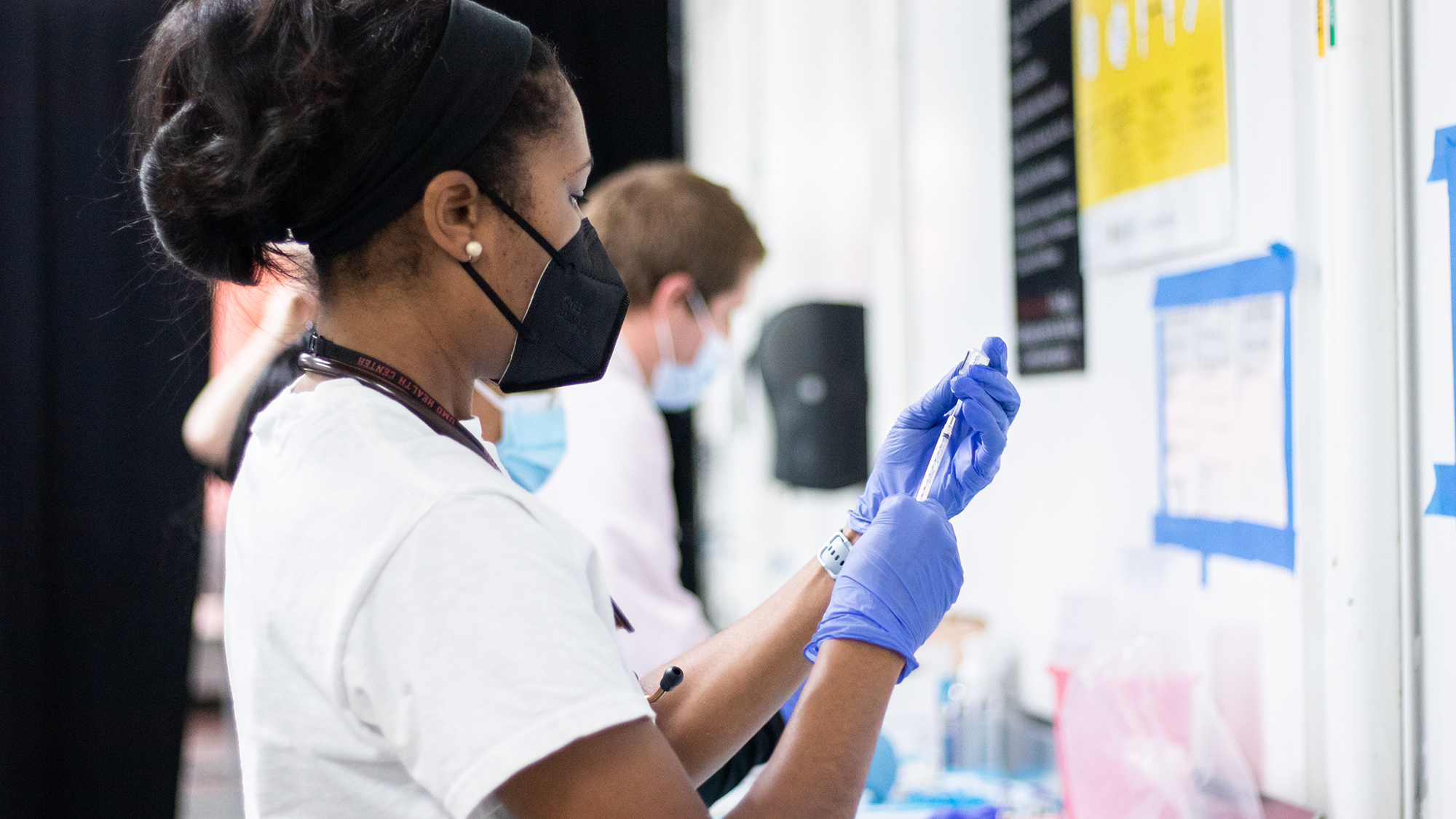Views expressed in opinion columns are the author’s own.
With the delta variant raging in the United States and around the world, especially targeting unvaccinated individuals, the U.S. is working harder than ever to increase vaccination rates.
Recently, experts have said the delta variant is as contagious as chicken pox, and it is more likely to lead to serious infection compared to other variants of COVID-19. Vaccines can provide protection against coronavirus infections and serious cases of the virus, but with a little less than half of the population fully vaccinated, COVID-19 cases are rising again.
Vaccines are more important than ever, yet for both U.S. and non-U.S. citizens, immunization is not a requirement to enter the country. Why are the concerns of the delta variant’s spread not extended to people at the country’s borders? The U.S. should require proof of vaccination for people entering or reentering the country.
The Centers for Disease Control and Prevention is advising people to “not travel internationally until you are fully vaccinated.” This is due to the fact that “even fully vaccinated travelers might be at increased risk for getting and possibly spreading some COVID-19 variants,” the CDC guidance says.
If these are its research-based recommendations, then this is the guidance that should be utilized. However, not everyone will follow these advisories. It’s summer, and with vaccines more widely available, people are itching to go on vacation abroad. But with the delta variant spiking cases, the U.S. could ensure safer travel through a vaccination requirement, thus prioritizing lowering COVID-19 cases.
The U.S. has failed to get the full vaccination rates past half the population so far, so allowing unvaccinated people from other countries to enter the U.S. could exacerbate this issue. The delta variant dominates in areas where many residents are unvaccinated, including states such as Alabama, Arkansas, Georgia, Mississippi, Missouri and West Virginia, where the vaccination rates are still low.
In some countries popular for American tourists, including the United Kingdom, France and Spain, there are more daily cases per million people than in the U.S. However, even if countries have fewer daily cases than the U.S. does, it is easier to slow the spread of COVID-19 by keeping unvaccinated people within the borders of their own country.
Additionally, unvaccinated U.S. citizens who travel to other countries should be of concern. Traveling through airports and visiting other countries increases the chances of contracting COVID-19. Travelers need to be vaccinated if they are traveling internationally — except for special circumstances requiring exemptions, which can be made if someone is medically, religiously or otherwise exempt from getting the vaccine or if a true emergency requires someone to travel to another country.
This guideline needs to be strong and strict so it will actually slow the spread of COVID-19. People are already traveling because regardless of what the U.S. does, some countries need tourism money, and U.S. citizens are willing to provide those funds. And for those who have been in isolation for the past year and a half, requiring vaccines for international travel and return to the U.S. may also be an effective incentive to get the shots.
The pandemic is never going to end if we do not make restrictions stricter. And the highly contagious and dangerous delta variant has made the stakes even higher.
While it is not ideal to not allow people to enter or leave the country during a pandemic, it is necessary. This is one of the most challenging, trying times in history, so we need to make the hard choices. It’s time vaccines are required to enter the country.
Courtney Cohn is a rising junior journalism and government and politics double major. She can be reached at cncohn1@gmail.com.



